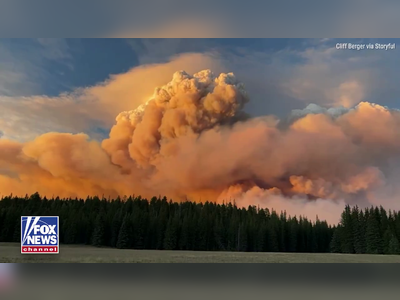Key Swing States Analysis Ahead of 2024 U.S. Presidential Election
An Insight into the Pivotal Role of Swing States in Shaping Electoral Outcomes
In the context of U.S. presidential elections, 'swing states' serve as crucial battlegrounds where neither political party has overwhelming support, making them key to securing electoral victory.
For the upcoming 2024 election, the significant swing states include Arizona, Georgia, Michigan, Nevada, North Carolina, Pennsylvania, and Wisconsin.
These states exhibit a strong competition between Republicans and Democrats, often resulting in closely contested outcomes.
Historically, Joe Biden's narrow win in Arizona by just 10,000 votes in 2020 exemplifies the intense competition in these regions.
Candidates focus their campaigns intensely on these swing states, given their pivotal role.
Recent polls conducted by YouGov until October 31 show Vice President Kamala Harris leads in Wisconsin, Pennsylvania, Michigan, and Nevada, whereas former President Donald Trump holds a slight lead in North Carolina and Georgia, with Arizona polling as a tie.
Georgia's evolving demographics and growing diversity were crucial in Biden's 2020 victory, marking the first Democratic win since 1992.
Nonetheless, Harris currently performs better in predominantly white states like Michigan and Wisconsin, with Georgia slightly leaning towards Trump.
In Nevada, which holds significant power with its six electoral votes due to its diverse populace, economic concerns such as inflation might influence more support towards Trump despite past trends favoring Democrats.
Michigan, historically a Democratic bastion, saw Trump's 2016 triumph through appeals to white working-class voters.
However, its diversity might give Harris an advantage, though issues like the Biden administration's handling of international conflicts could sway opinions.
Pennsylvania remains a coveted electoral target with its 19 votes.
Once a Democratic stronghold, its shift reflects industrial economic challenges, prompting heavy campaigns from both parties focusing on manufacturing and infrastructure recovery.
In Arizona, Trump focuses on capitalizing on immigration policy dissatisfaction to reclaim the state, given its border with Mexico.
North Carolina, traditionally Republican, faces a demographic shift with increased populations of white college-educated voters, Latinos, Asian Americans, and Blacks, classifying it as a toss-up state.
Wisconsin, once showing a Republican lead, now sees Harris closing in, making it a fierce battleground.
The Republican Party's national convention this summer further highlights its strategic importance.
For the upcoming 2024 election, the significant swing states include Arizona, Georgia, Michigan, Nevada, North Carolina, Pennsylvania, and Wisconsin.
These states exhibit a strong competition between Republicans and Democrats, often resulting in closely contested outcomes.
Historically, Joe Biden's narrow win in Arizona by just 10,000 votes in 2020 exemplifies the intense competition in these regions.
Candidates focus their campaigns intensely on these swing states, given their pivotal role.
Recent polls conducted by YouGov until October 31 show Vice President Kamala Harris leads in Wisconsin, Pennsylvania, Michigan, and Nevada, whereas former President Donald Trump holds a slight lead in North Carolina and Georgia, with Arizona polling as a tie.
Georgia's evolving demographics and growing diversity were crucial in Biden's 2020 victory, marking the first Democratic win since 1992.
Nonetheless, Harris currently performs better in predominantly white states like Michigan and Wisconsin, with Georgia slightly leaning towards Trump.
In Nevada, which holds significant power with its six electoral votes due to its diverse populace, economic concerns such as inflation might influence more support towards Trump despite past trends favoring Democrats.
Michigan, historically a Democratic bastion, saw Trump's 2016 triumph through appeals to white working-class voters.
However, its diversity might give Harris an advantage, though issues like the Biden administration's handling of international conflicts could sway opinions.
Pennsylvania remains a coveted electoral target with its 19 votes.
Once a Democratic stronghold, its shift reflects industrial economic challenges, prompting heavy campaigns from both parties focusing on manufacturing and infrastructure recovery.
In Arizona, Trump focuses on capitalizing on immigration policy dissatisfaction to reclaim the state, given its border with Mexico.
North Carolina, traditionally Republican, faces a demographic shift with increased populations of white college-educated voters, Latinos, Asian Americans, and Blacks, classifying it as a toss-up state.
Wisconsin, once showing a Republican lead, now sees Harris closing in, making it a fierce battleground.
The Republican Party's national convention this summer further highlights its strategic importance.












